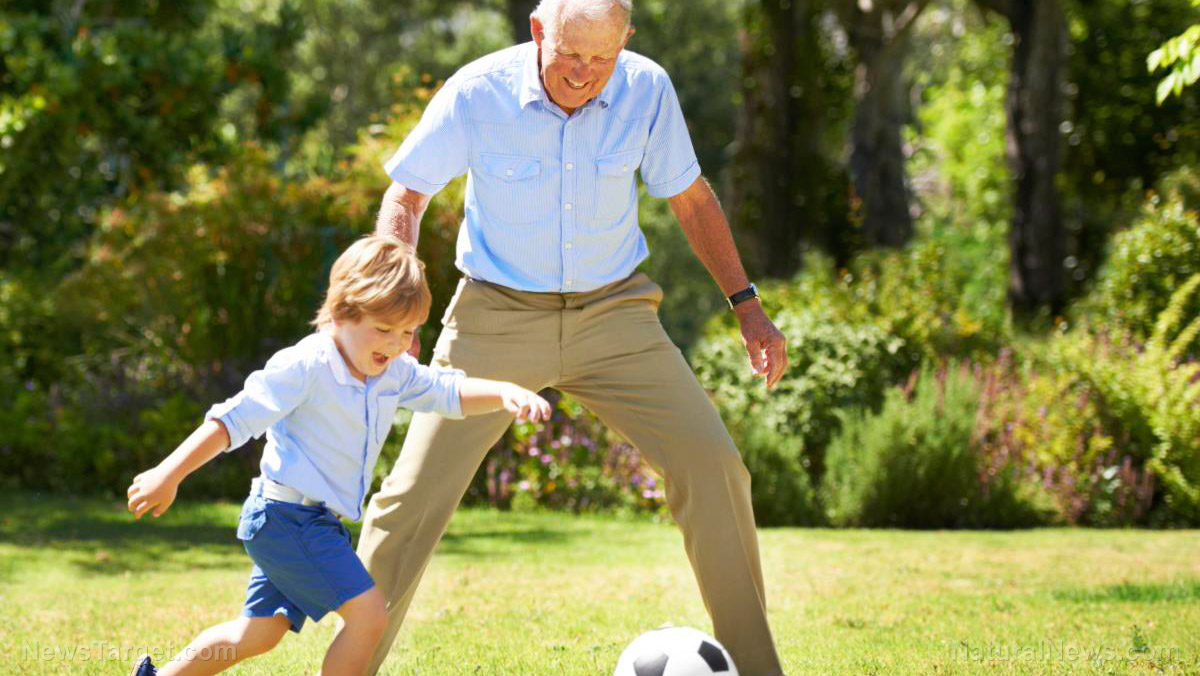Vitamin D may accelerate muscle repair when combined with olive oil, according to new study
03/12/2018 / By Isabelle Z.

You are probably familiar with the bone-strengthening effects of vitamin D, but a new study reveals that the vitamin can also help to repair muscle fibers significantly when it is consumed along with extra virgin olive oil.
Researchers from the University of Catania in Italy fed some rats a regular diet, while others were given a diet based on high-fat, extra virgin olive oil or high-fat butter. Some were also given 4,000 IU/kg of Vitamin D supplements. A total of 28 rats were studied over the course of ten weeks. After the trial period ended, the researchers examined the rats’ skeletal muscle fiber thickness, along with biomarkers of muscle synthesis and inflammation.
All of the rats who took Vitamin D had significantly thicker muscle fiber than those who did not take the supplements. Even more surprisingly, however, was the fact that those who ate the olive oil as well noted even greater muscle fiber thickness.
The benefits can’t be attributed to the fats in the olive oil; the scientists found that rats who consumed the diet high in butter fat actually experienced deterioration in their muscle fibers, along with much higher levels of inflammatory interleukin-1 beta molecules and lower levels of insulin growth factor, which is linked to a reduced synthesis of muscle protein. It’s worth noting, however, that vitamin D prevented this type of muscle damage in the rats who ate a high-fat butter diet and also supplemented with Vitamin D.
These findings are significant as the loss of skeletal muscle mass that comes with aging is very common among the growing elderly population. The condition, which is known as sarcopenia, has been linked to obesity, and it was ready known that a deficiency in vitamin D could lead not only to sarcopenia but also falls and frailty in older people.
The power of the elements: Discover Colloidal Silver Mouthwash with quality, natural ingredients like Sangre de Drago sap, black walnut hulls, menthol crystals and more. Zero artificial sweeteners, colors or alcohol. Learn more at the Health Ranger Store and help support this news site.
The study indicates that combining vitamin D with healthy fats like those found in extra virgin olive oil while avoiding saturated fats could slow sarcopenia’s progress, but the scientists note that further research is needed in order to confirm their findings.
The benefits are believed to come from the anti-inflammatory effects of Vitamin D, which has been shown in previous studies to stimulate muscle repair and recovery through a higher expression of vitamin D receptors in the skeletal muscle.
How can you prevent age-related muscle loss?
While it is good advice in general to ensure you get enough vitamin D and consume healthy fats like olive oil, scientists have already shown that consuming more protein can also help to prevent sarcopenia. A study published in the American Journal of Physiology – Endocrinology and Metabolism found that adults above the age of 50 might need to double the amount of protein they consume in order to boost their health. Those who did so noted significant increases not only in muscle protein synthesis but also improvements in their net protein balance. Meanwhile, researchers from Scotland’s University of Stirling have found that adults 65 and older might need to eat as much as 90 percent more protein with every meal to prevent sarcopenia. In addition, studies on farm animals have found that consuming a diet rich in omega-3 can increase muscle mass.
With one out of every four people aged 50 to 70 and half of those older than 80 showing signs of sarcopenia, it’s a condition that everyone needs to know how to address as they age. While a reduction in muscle size of 0.5 to 2 percent per year is considered “healthy sarcopenia,” excessive sarcopenia is dangerous yet easy to avoid by making smart diet and lifestyle choices.
Read VitaminD.news for full coverage of vitamin D’s nutritional benefits.
Sources for this article include:
Tagged Under: elderly, extra virgin olive oil, healing, healthy aging, longevity, muscle loss, natural remedies, nutrients, nutrition, olive oil, protein consumption, sacropenia, supplements, vitamin D




















